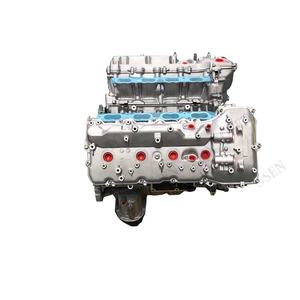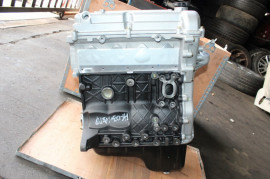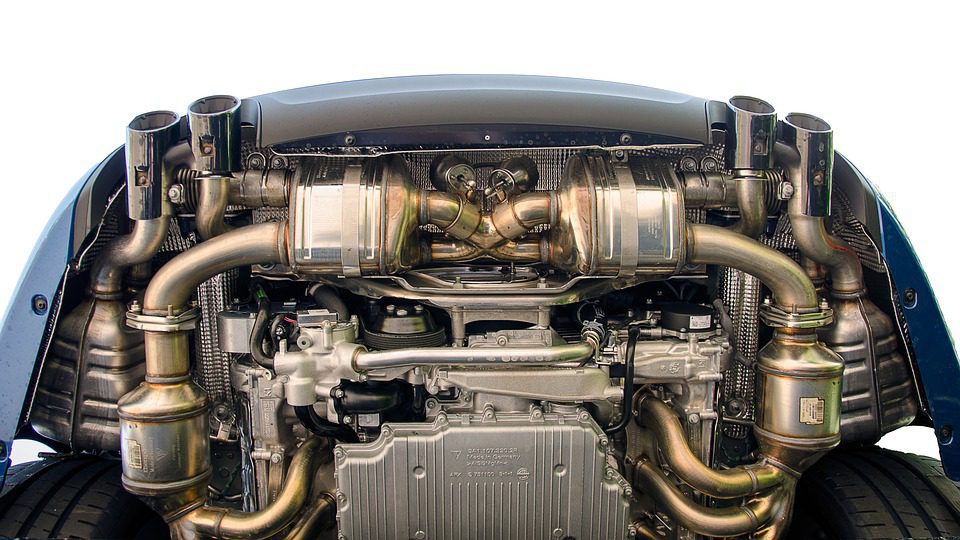A Thorough Comparison of Different Kinds Of Import Engines and Their Applications in Different Cars
As the automotive market remains to advance, the choice of engines for cars comes to be significantly diverse, each offering unique benefits and applications. From the effectiveness of turbocharged engines to the ecological kindness of electrical powertrains, the range of import engines offered in today's market deals with a broad variety of driving demands and choices. Whether it's the torque of a diesel engine or the unconventional design of a rotary engine, comprehending the nuances of each type and exactly how they line up with certain automobile demands can dramatically influence efficiency, gas economic situation, and total driving experience. By discovering the details of these import engines and their applications in numerous automobiles, a more clear photo emerges of the elaborate balance in between modern technology, efficiency, and sustainability in the contemporary automobile landscape.
Turbocharged Engines
Turbocharged engines, understood for their capability to improve power output successfully, have come to be progressively prevalent in modern-day car layouts. By using exhaust gases to drive a turbine that compresses inbound air into the engine, turbochargers effectively boost the amount of air and fuel combination that can be combusted, causing improved efficiency without significantly boosting engine size. This innovation permits producers to scale down engines, leading to much better gas efficiency while preserving power degrees comparable to larger, normally aspirated engines.

Hybrid Engines
With the advancements in engine technology helping with enhanced performance and performance, the automobile industry has actually seen an increase in the integration of crossbreed engines as a sustainable remedy for power shipment. Hybrid engines incorporate the benefits of both inner combustion engines and electrical motors to offer improved fuel effectiveness and decreased exhausts. By perfectly switching between the two power resources or using them all at once, hybrid engines provide convenience in different driving problems.

In addition, hybrid technology is not limited to a particular automobile kind, with applications varying from portable cars to bigger SUVs and also high-performance cars. As environmental issues and fuel effectiveness policies end up being progressively famous, hybrid engines stand for a considerable step towards sustainable transportation services.
Electric Engines
Electric engines have revolutionized the automotive industry with their environmentally-friendly and reliable power distribution systems. import engines. These engines run by converting electrical energy right into mechanical power, providing a smooth and quiet driving experience. Unlike traditional combustion engines, electric engines generate absolutely no tailpipe exhausts, reducing the total carbon footprint of lorries and helping fight air pollution
One of the vital advantages of electric engines is their high energy performance, usually transforming over 80% of the electric power into propulsion. This efficiency equates right into price financial savings for customers through decreased fuel costs. Furthermore, electrical engines call for much less upkeep contrasted to inner burning engines, as they have fewer relocating parts that can break in time.
Electric engines are typically utilized in electric vehicles (EVs) and crossbreed electrical automobiles (HEVs) On the other hand, HEVs resource integrate electric engines with traditional inner burning engines to enhance fuel performance and lower discharges.
Diesel Motor
Diesel engines are renowned for their outstanding gas efficiency and robust performance in a range of vehicle applications. These engines run by pressing air in the cyndrical tubes, which leads to high temperatures that fire up the injected diesel gas without the demand for ignition system. This burning technique provides diesel motor with higher torque outputs compared to fuel engines, making them suitable for heavy-duty automobiles like vehicles, buses, and building tools.
One of the essential benefits of diesel motor is their exceptional gas performance, as they can take a trip further on a gallon of gas compared to gas engines. This performance is particularly valuable for long-haul transport and business fleets, where decreasing gas prices is a significant element. Furthermore, diesel motor are recognized for their sturdiness and durability, calling for much less upkeep over their life-span contrasted to fuel engines.
In the last few years, innovations in diesel motor modern technology have actually additionally concentrated on reducing emissions to meet stringent ecological laws. Modern diesel motor are furnished with sophisticated emissions regulate systems, such as diesel particle filters and careful check over here catalytic reduction, which assist reduce pollutants released right into the ambience - import engines. These growths have made diesel engines cleaner and much more environmentally friendly while preserving their performance and efficiency attributes
Rotary Engines
Prominent for their distinct layout and performance characteristics, rotating engines offer an unique alternative to standard combustion engine innovations like diesel engines. These engines, also understood as Wankel engines, run on a different concept contrasted to traditional piston engines.

Conclusion
To conclude, the contrast of different kinds of import engines highlights the variety of choices available for numerous automobiles. Turbocharged engines provide increased power and performance, hybrid engines combine electrical and standard power sources for boosted fuel economy, electrical engines offer a tidy and sustainable choice, diesel engines are recognized for their longevity and torque, and rotary engines offer an one-of-a-kind design with possibility for high performance. Each engine kind has its very own staminas and applications in the automotive industry.
In addition, hybrid engines contribute to a quieter driving experience and commonly offer a smoother velocity contrasted to conventional inner combustion engines.
Distinguished for their unique style and efficiency characteristics, rotary engines supply a distinct option to typical combustion engine innovations like diesel engines. These engines, additionally known as Wankel engines, operate on a different concept contrasted to standard basics piston engines. Despite these restrictions, rotating engines proceed to bring in enthusiasts and producers looking for a various engine technology with distinct advantages.
Turbocharged engines use raised power and performance, crossbreed engines combine traditional and electric power sources for enhanced fuel economic climate, electrical engines supply a tidy and lasting option, diesel engines are understood for their longevity and torque, and rotating engines supply an one-of-a-kind layout with possibility for high efficiency.